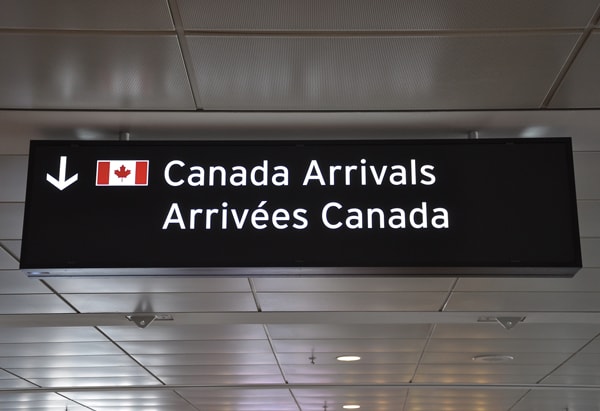[vc_row][vc_column][vc_column_text]
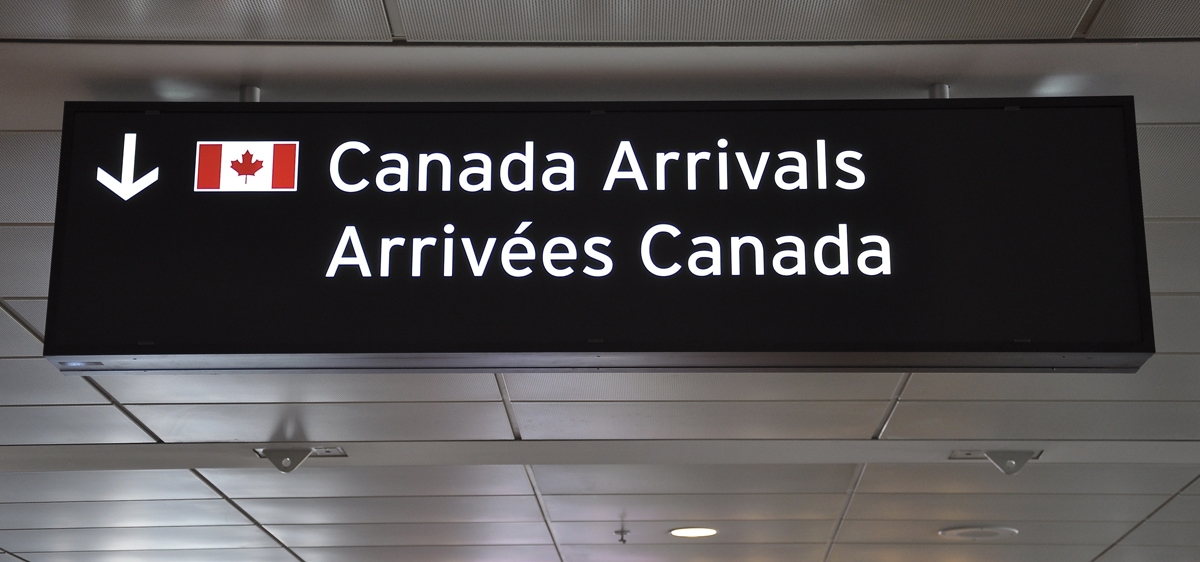
[/vc_column_text][/vc_column][/vc_row][vc_row el_class=”hero-header-text”][vc_column][vc_column_text]
Strathmore, Alberta: Preparing Room
Place of Refuge – Part Three
by Shelby Dwyer | February 5, 2018
[/vc_column_text][/vc_column][/vc_row][vc_row][vc_column][vc_column_text]The numbers of people who have been forced to leave their homes throughout the world are staggering and growing—imagine the entire population of the United Kingdom or half the population of Mexico having to leave their homeland. How do we begin to understand what that means? While the scope of this global crisis may seem incomprehensible and the solutions beyond our reach, at the heart of the crisis are individuals trying to survive to keep their families together, and to find safe landing. In this seven-part series, we look at the stories of those who have sought refuge and those who have entered into their lives to offer help and support.[/vc_column_text][vc_column_text]This story is Part-three of the Place of Refuge series. Click here to view additional stories.[/vc_column_text][/vc_column][/vc_row][vc_row][vc_column][vc_column_text]
In the summer of 2015 I heard a CBC radio story about Canadians who formed small groups to sponsor Vietnamese refugees in the 1970s. After hearing it, I wanted to explore what it would mean to host a Syrian family in my hometown of Strathmore, Alberta. I started doing research and reached out to the church I had just started attending—Hope Community Covenant.
The pastors were immediately on board, and we decided to share our idea with the broader community. We hosted an information session at church, and then we formed a core group of six people from the community who would coordinate the fundraising, communications, legwork of collecting household items, and logistics, such as filling out the paperwork, etc.
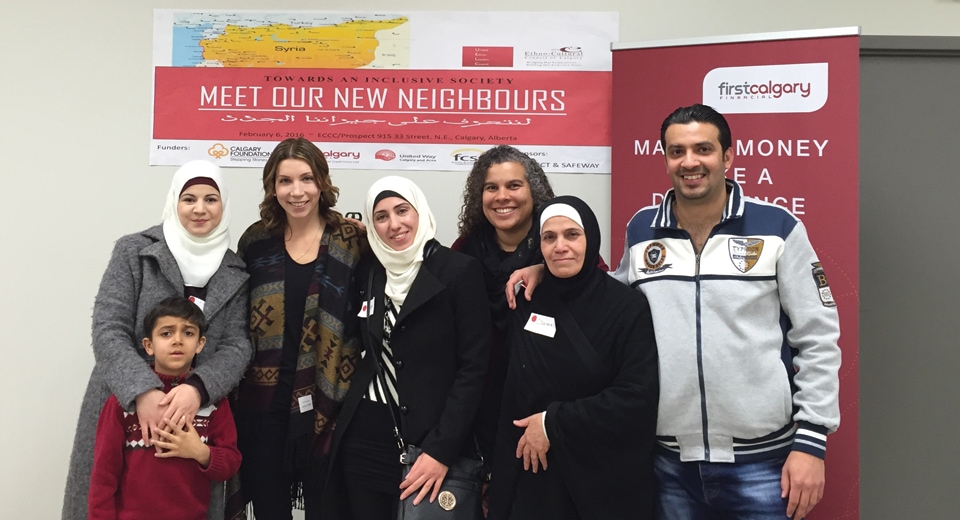
In October we started the paperwork, and within a few weeks we were matched with a family. We were told that they would arrive in two or three months, so we began our preparations in earnest. We secured a house to rent starting at the beginning of January, assuming that would give us plenty of time to paint and furnish it prior to their arrival.
Then on December 16, we learned that some members of the family would be traveling to Canada from Beirut in two days. They would arrive in Calgary on December 19.
Fortunately, the owner of the house was eager to help. We sent out a call to our supporters in the community and churches, and on the morning of December 18 more than a dozen volunteers showed up to clean, paint, and move in all of the household items that we had procured for our new guests. Twenty-four hours later their new home was ready for them to move in—it was nothing short of a Christmas miracle.
On the 19th our organizing committee headed to the airport. We were nervous and excited. Anxiously watching through the glass at Air Canada arrivals, we wondered if we would know our guests when we saw them.
When they walked through the door they were smiling but looked exhausted. We brought them to their new home to settle in. They told us later that although their children were incredibly tired, they wouldn’t sleep because they were so excited about their new rooms and the few toys that had been donated.
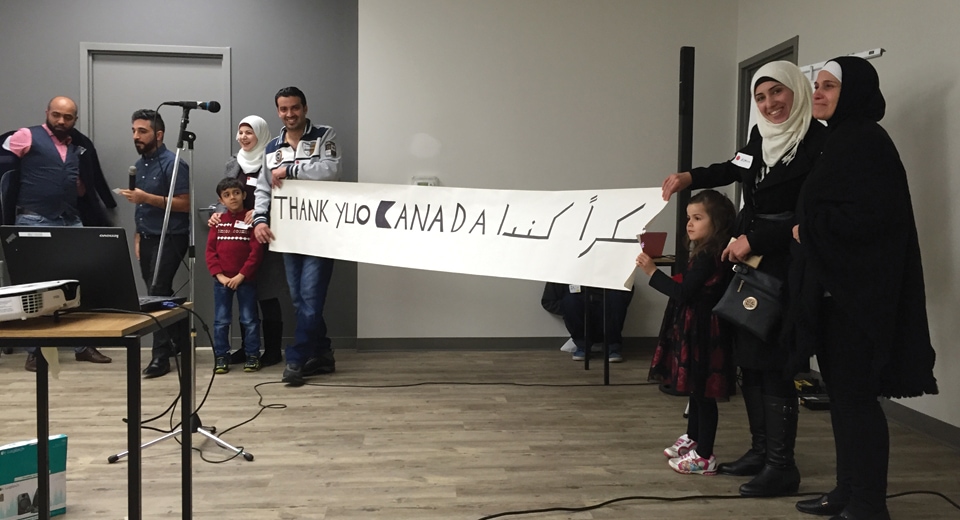
The next day our group went over to reintroduce ourselves with a translator. Osama, the father, spoke English very well. We met his wife, Alaa, and their children. They were exhausted and overwhelmed but also incredibly happy and warm. We began the process of resettlement, using iTranslate on our phones to help us communicate. Sometimes that produced confusing or hilarious results, but for the most part it was a wonderful tool.
In the succeeding days and weeks our new friends began to embrace Canada and Canadian culture as they began their new life here. They had spent the past two years living as refugees in Lebanon after fleeing their home in Damascus, and they had left behind friends and relatives in both countries. Arriving here, they began learning about our habits and participating in our traditions—from putting up Christmas lights to studying an information booklet on what to put on sandwiches. Within weeks of their arrival, they spent New Year’s Day at Hope Community Covenant, tried the wonderful Canadian pastime of tobogganing, and had their first drinks at Starbucks!
Within weeks of their arrival, they tried tobogganing, and had their first drinks at Starbucks!
As we got to know Osama and Alaa, we saw what kind, gentle parents they are. I began to see how much I could learn from them in other ways as well. They valued time spent together and wanted deepened relationships—something that’s easy for us busy Canadians to neglect. I learned to lower my expectations of how much we could get done in a day and just spent time talking, laughing, and being together.
A few weeks later we welcomed Osama’s father, mother, and sister after a long and arduous journey. His father, Saleem, was suffering from kidney disease and had had poor access to healthcare in Lebanon, so travel was difficult for him. Although Osama’s parents knew very little English, they were welcoming and loved having our group over for a meal and game of cards.
Sadly, Saleem passed away from kidney failure six months later. It was heartbreaking to witness this time of grief in the midst of such hope, but the family leaned on each other and their faith to carry them through. And seeing so many people from different cultures come together to offer support to the family was beautiful.
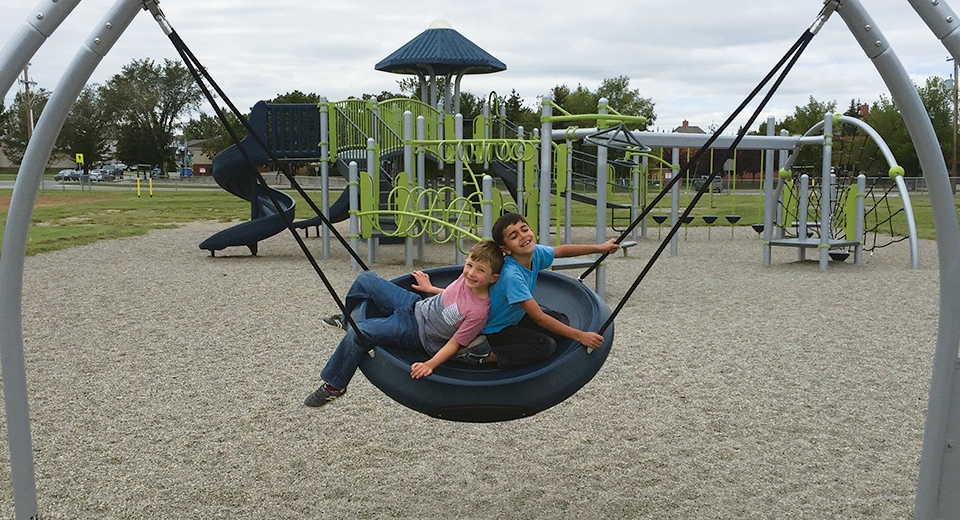
Over the next two years Osama and Alaa’s children became acclimated to their new school. Local job and volunteer opportunities helped the family improve their English. Within five months of their arrival, Osama was working at a local barber shop, where he became one of the most popular barbers.
The family has since moved to Calgary, but we are still close. Osama’s sister was an English teacher in Syria and now teaches ESL at an immigration center here. The children are fluent in English and we all laugh at their Canadian accents and mannerisms. Alaa is taking online English classes and hopes to one day attend school to become a hairdresser.
Our Syrian friends have integrated into the fabric of their community and they give back in amazing ways. They are kind, caring, and incredibly loving. They have changed my life and the way that I look at the world. My children have also learned so much from this experience.
Currently Hope is partnering with Rosebud (Alberta) Church, a Covenant congregation, to sponsor another family. We continue to plan seminars and events that will encourage building deeper connections with our neighbors of different backgrounds and faiths.
[/vc_column_text][/vc_column][/vc_row]


